Safety Specialist’s Tool Kit
How do you assemble a lifeline? For by-the-book installations, you need the perfect tools.
When it comes to installing fall protection and lifeline systems, one crucial aspect installers tend to overlook is using the right tools. The quality and safety of the final result also depend on the equipment used. Having the right tools not only simplifies the job but also ensures professional, certifiable results.
Fortunately, equipping yourself with everything you need for a safe and flawless installation is easier than you might think.
To assist safety specialists and those in the business of installing lifelines, here is a comprehensive checklist of essential tools: everything you need, along with solutions for anything that might be missing.
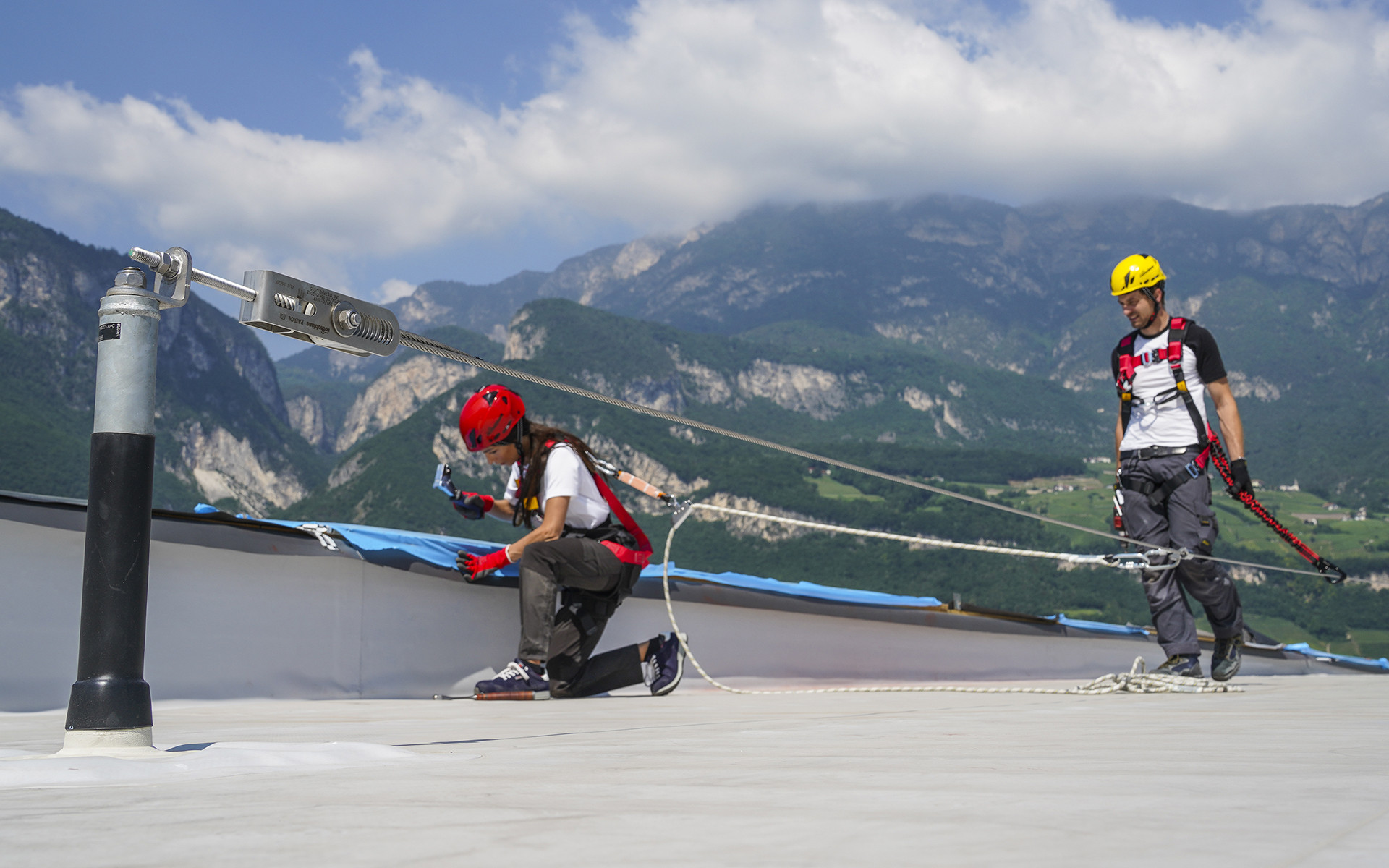
Safety specialist’s tool kit: complementary tools for lifeline installations
1. Screwdrivers and drills
The first step in achieving an effective installation is inserting the fasteners. During this stage, it is crucial to use powerful and ergonomic screwdrivers. The A 18 and ASB 18 screwdrivers, for example, are ideal for this task. Powerful, handy and robust, these screwdrivers are a pleasure to use. Equipped with LED lights at the front, they keep the working area constantly illuminated. By means of two bubble levels, one above and one on the side, the angle of operation can always be monitored, both horizontally and vertically. These user-friendly, accurate tools are designed to deliver flawless fastening, ensuring the safety and durability of the installation.
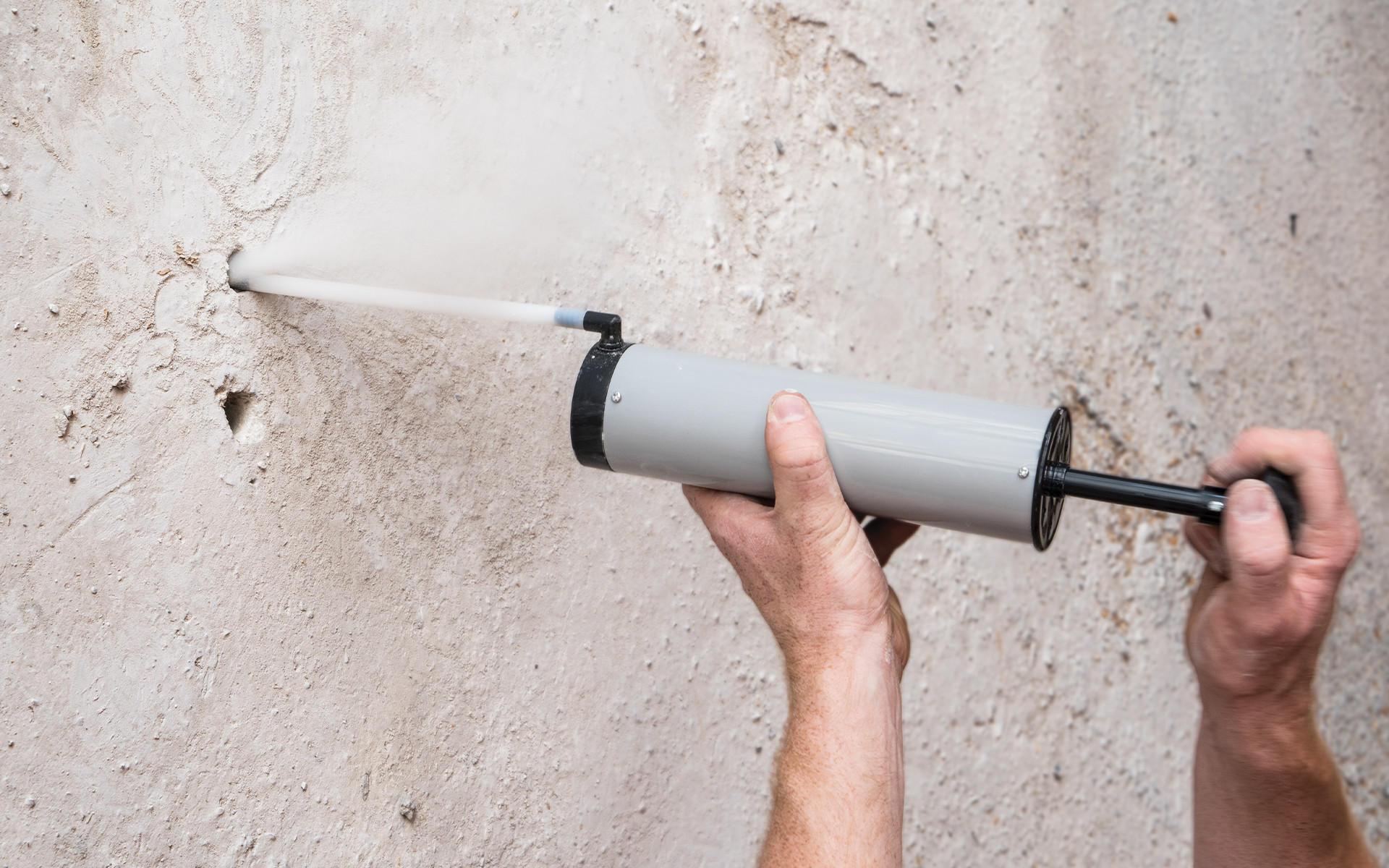
2. Flawless holes
After drilling into the materials of the layer where the lifeline will be installed, the holes need to be cleaned before applying the chemical anchors, especially when working on concrete. This is done by means of brushing and blowing. The PONY air pump is the ideal tool for this procedure, ensuring thorough cleaning and removing any dust and debris that could otherwise compromise the efficacy of the chemical anchors.
3. Applying chemical anchors
Chemical anchors require specific, lightweight tools for their application, designed to minimise dripping and product waste. The MAMMOTH gun is designed to ensure the precise application of chemical anchor resin. Durable and robust, it provides consistent and accurate dispensing, but is just one of the many options available in the Rothoblaas range. Each resin cartridge needs its own specific gun to ensure proper application.
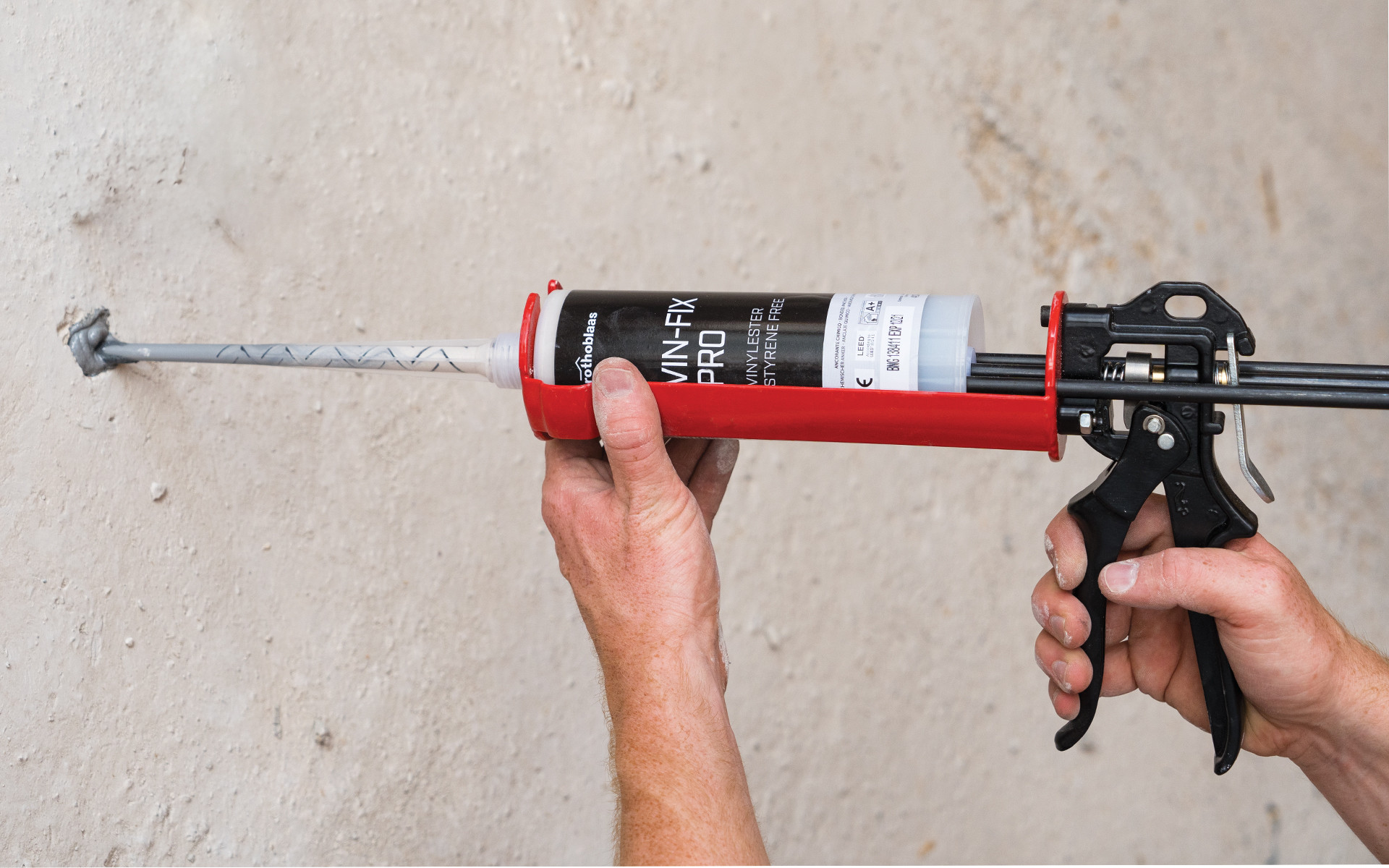
4. Threaded rods
Threaded rods are crucial for fastenings that need to ensure tensile strength. INA is a threaded rod specifically designed for chemical anchors, made of high-quality zinc plated steel (5.8 and 8.8). These rods provide exceptional strength and are ideal for applications requiring high mechanical strength.
5. Torque wrenches
Having inserted the threaded rods, the next step is to install the support most suited to the roof and lifeline. BEAR is the perfect torque wrench for the job. It allows precise control over the tightening torque, crucial in ensuring accurate and safe fastenings. Featuring a SOCKET that can adapt to different hex head sizes, BEAR is both versatile and reliable.
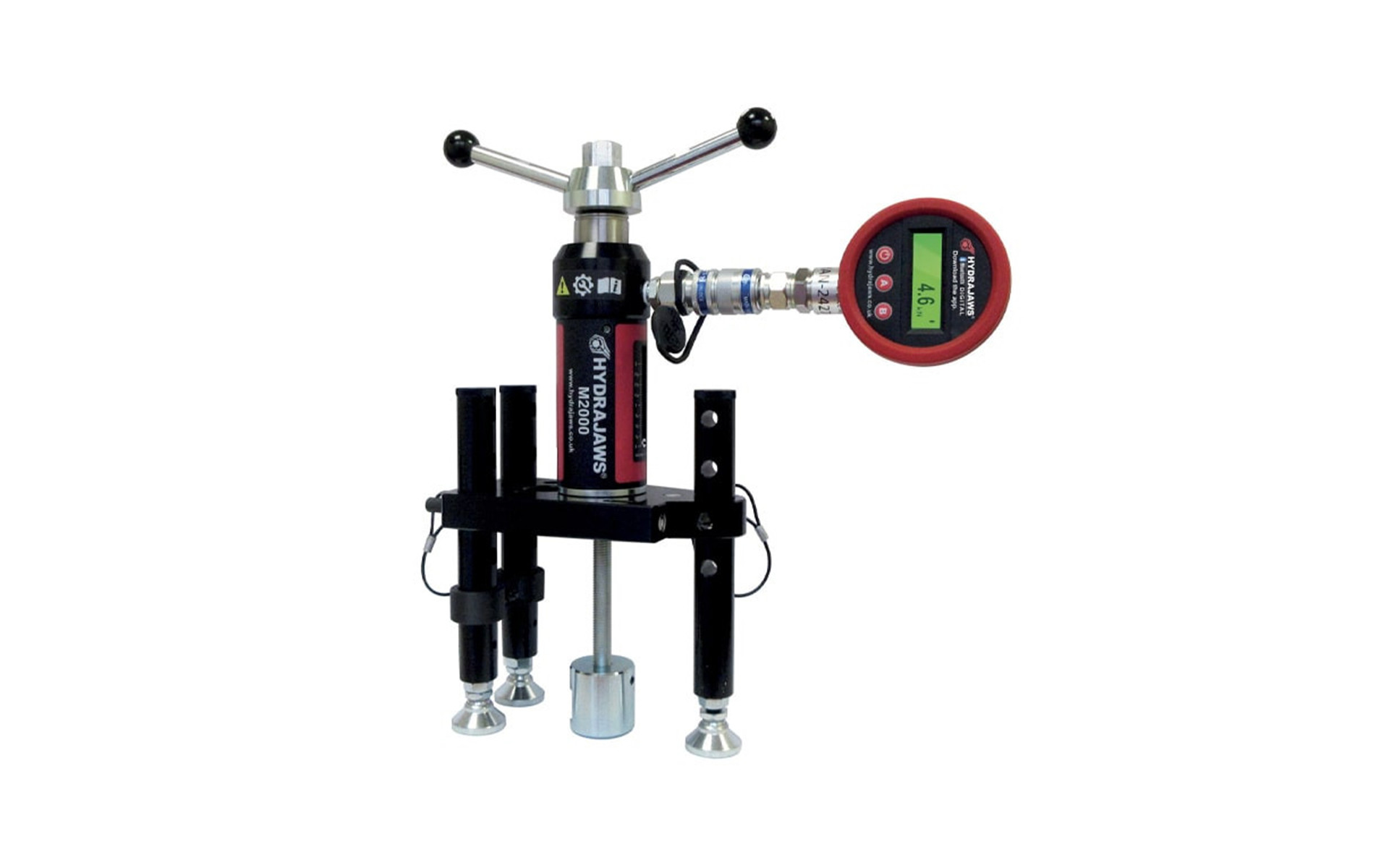
6. Safety test
To make sure the anchors can handle the loads they might be subjected to in case of a fall, certain tests must be performed. The ESTRO portable extractometer, with a 25 kN capacity, is perfect for testing the suitability of fastenings installed in concrete and other materials. This tool ensures the anchors meet the necessary safety requirements.
7. Waterproofing
Where there are holes, there can be infiltrations, a serious problem when it comes to roofing. For fast and effective waterproofing that doesn't take up much space in your toolbox, BYTUM SPRAY is the ideal solution. It rapidly seals vulnerable areas, preventing infiltrations and providing long-term protection.
8. Installing the lifeline components
CRICKET is the perfect steel ratcheting wrench for installing your lifeline components. It combines the 8 most common sizes used in carpentry into one tool and features a long, hardened steel handle, perfect for effectively tightening nuts and bolts.
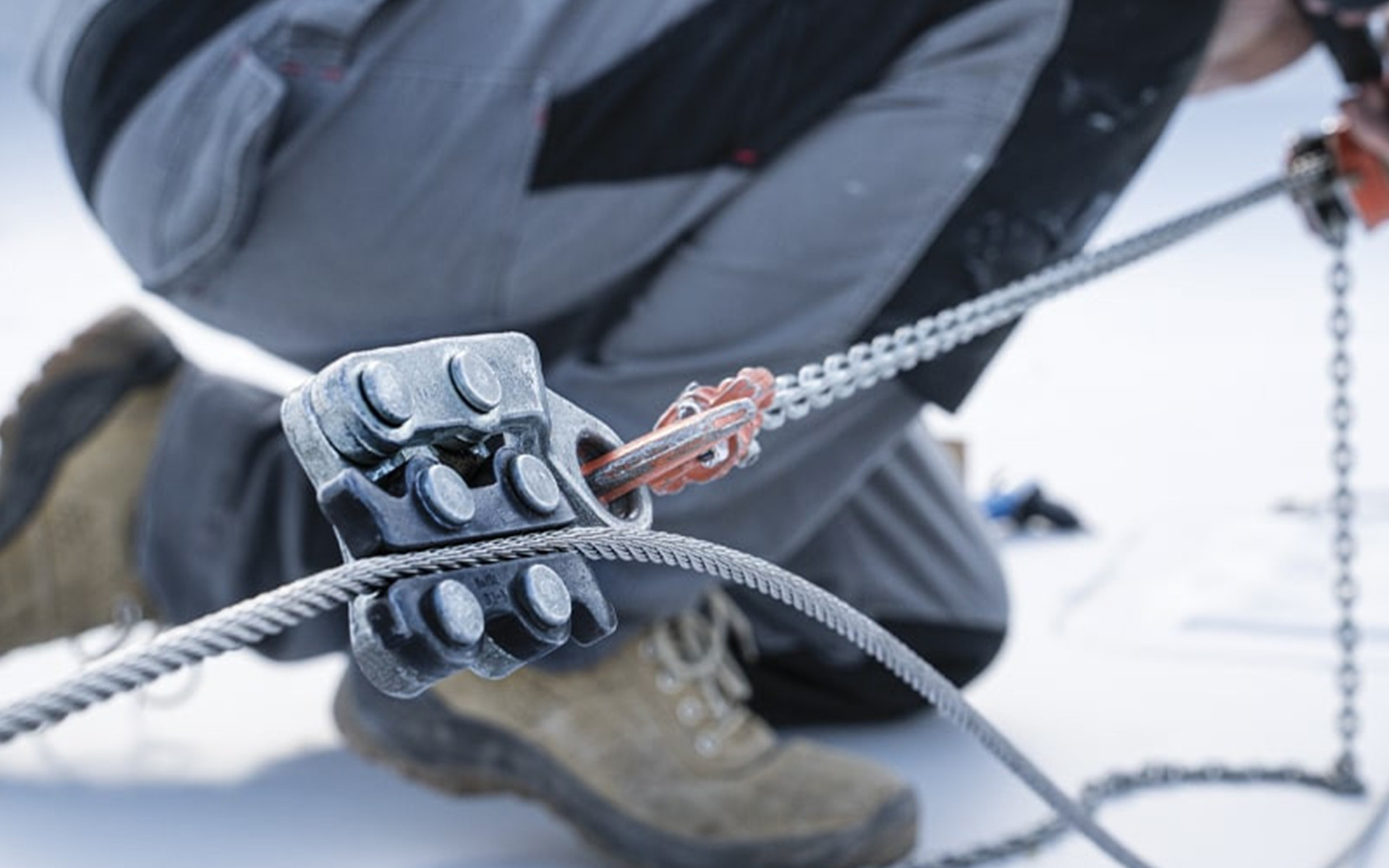
9. Cord tension
The cord must be installed with the perfect tension. To do so, tensioners and clamps like ROPE CLAMP and CABLE CLAMP are used. These tools help maintain the correct tension and ensure the lifeline performs as intended.
10. Cutting Excess Cables
Lastly, any excess cable must be removed to avoid hazards. CABCUT is the ideal tool for cutting steel cables up to Ø12 mm, ensuring a safe and time-efficient process.
-1723024861.jpg?w=1920&h=1080&fit=cover)
So, what do you need to assemble a roof lifeline system?
Installing fall protection and lifeline systems requires more than simple skills; it demands high-tech tools and products. From drilling to final installation, every step must be performed using tools specifically designed to guarantee precision and safety. Using the right equipment not only makes the job easier but is also essential in ensuring high-quality results and user safety.
And yet, having the proper tools isn't enough either: investing in ongoing training is essential for mastering the use of fall protection systems, fastenings and tools. For detailed information and to make sure you have everything you need for your installations, click on the tool name below to access the technical data sheets for each one.
And, for guaranteed flawless and safe installations, click here to request your comprehensive, free consultation: https://www.safety-rothoblaas.com/en/installatori
All rights reserved
Technical Details
- Companies:
- ROTHOBLAAS
- Country:
- Any
- Products:
- A 18 | ASB 18 BEAR BYTUM SPRAY CABCUT CABLE CLAMP CRICKET ESTRO INA MAMMOTH PONY ROPE CLAMP SOCKET




